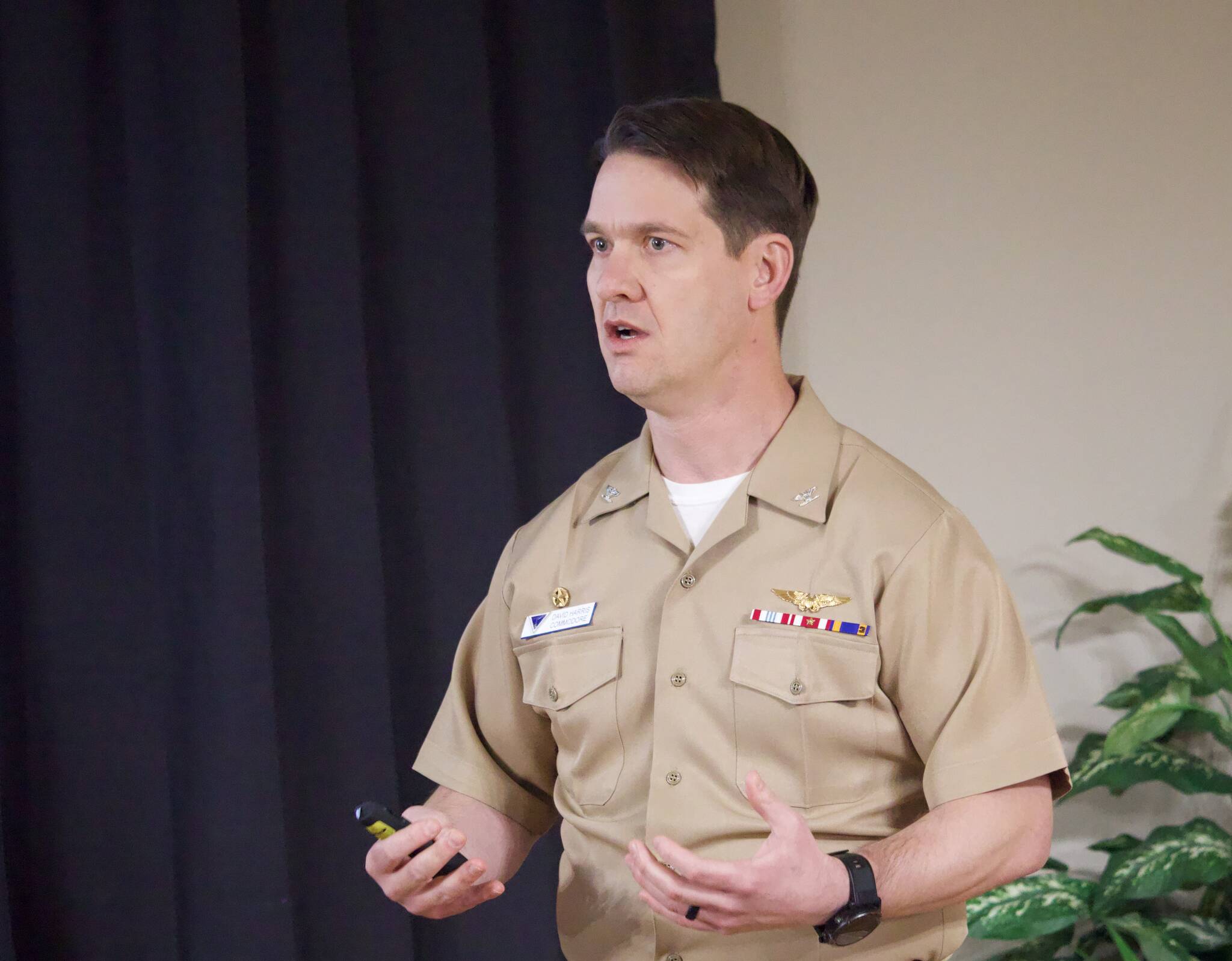A naval aviator known as Rooster gave the community some insight on what is going on in the Navy world.
Commodore David “Rooster” Harris, commander of the U.S. Pacific Fleet Electronic Attack Wing, was the guest speaker for the Oak Harbor Navy League’s December meeting.
Harris said he got his call sign because the hair on the back of his head stuck straight up like a rooster tail. Call signs are nicknames given to naval aviators and often come from less-than-flattering stories.
“I never did anything quite dumb enough to get a new one,” Harris said.
When “Top Gun: Maverick” was filming in the area, Harris had a chance to meet some of the actors. Miles Teller, who played a character with the same call sign, got to meet the real Rooster. Teller asked Harris if he wanted to arm wrestle for the moniker.
Aside from meeting celebrities, Harris has an impressive background in the Navy. He became a naval flight officer in 2000 and has deployed several times with different squadrons. He attended Electronic Attack Weapons School and was selected to be the skipper of VAQ-132, his first squadron. He served as the commanding officer of VAQ-129 from June 2018 to July 2020.
“Something that I never, never in a million years could have imagined,” Harris said.
Harris was the deputy commodore for 18 months before taking over as commodore in August.
Of all of the commerce that exists in the world, Harris explained, 90% of it travels by sea. The Navy maintains freedom of navigation through critical sea lanes and to deter conflict, but also does much more than that.
Harris spoke about the Growler electronic attack squadron VAQ-134, based on Naval Air Station Whidbey Island, which deployed to Germany to support counter Russian operations near Ukraine.
“I could not have asked them to do any better in a really tough scenario where they had to tell their families they were deploying in just a few weeks,” Harris said.
It’s Harris’ job to make sure that Growler squadrons are properly manned, trained and equipped in order to fight in the nation’s wars and avoid conflict. He said there is nowhere else in this region where Growler pilots can train and accurately replicate combat.
“We have amazing airspace up here in order to do our training,” he said. “and it takes a lot of airspace to do our advanced tactics.”
Harris shared with the Navy League several upgrades for Growlers, including a technology called Magic Carpet, which automatically makes corrections for pilots in order to land on aircraft carriers safely. It does not completely automate the process but makes the most dangerous thing in naval aviation slightly easier. Harris said it also allows more time for tactical training.
Nowadays, a lot of pilot training can be done via simulation.
“We don’t have to wait for a flight in order to get our training,” he said. “We are constantly training. In fact, the majority of the syllabus is done via simulation.”
Harris spoke about challenges for the local community. On Whidbey Island, housing is unsurprisingly an issue. He told audience members they would be stunned to know how many sailors are living in distant towns such as Concrete or Arlington, or in campers because they cannot find affordable housing.
The lack of staffing on the base has also caused problems with the medical clinic, as well as childcare. Harris emphasized the large percentage of sailors that are in dual military couples or single parents, so adequate childcare is crucial.
The Navy League meets on the first Tuesday of every month except July and August. Visit oakharbornavyleague.org for more information.



